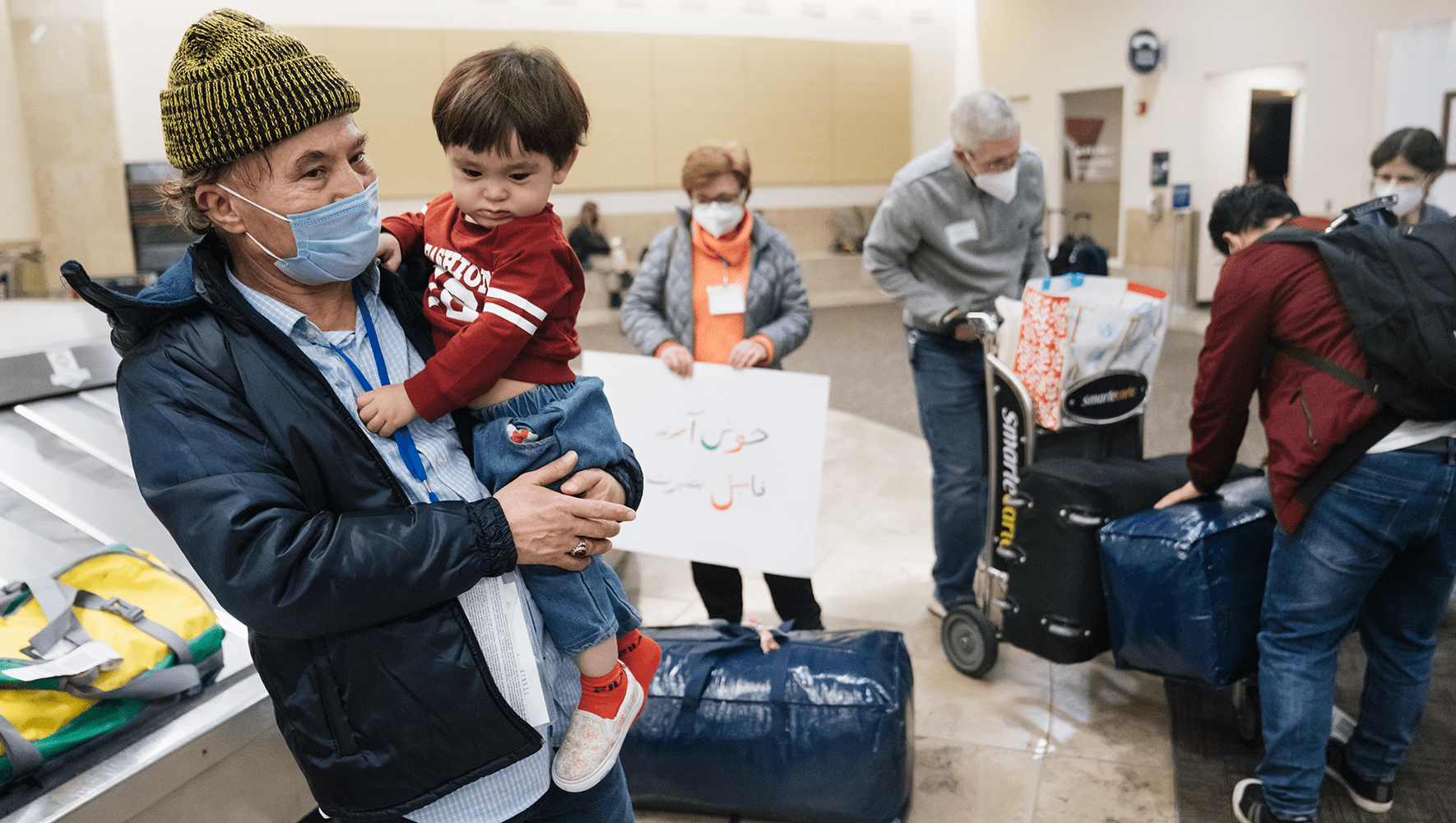HIAS Launches Pilot Project to Create Welcome for Refugees
By HIAS
Sep 17, 2013
What if picking up your entire life and your family and moving to a new country with a very different culture and language was your only way to survive? What if, upon arrival, people in your new community actively tried to prevent people like you, refugees, from staying in their city?
This scenario is not just hypothetical. Across the United States, the increase in state and local government anti-resettlement activities is creating a hostile environment for those arriving in their new communities and threatening the United States’ capacity to resettle the most vulnerable.
In recent years, government officials have opposed resettlement in several states. Just last month, the Mayor of Springfield, Massachusetts pushed back against the resettlement of refugees in the city, saying that they place a burden on municipal resources and calling on the U.S. State Department to stop the flow of refugees.
The U.S. has a long history of providing protection and assistance to refugees—people outside their country who have a well-founded fear of persecution in their country of origin based on race, religion, nationality, membership in a particular social group, or political opinion. Of the more than 15 million refugees worldwide who have fled their countries, few can ever return home and only one percent are resettled to a third country. Through the U.S. Refugee Admissions Program, in the past few decades the U.S. has helped millions of refugees start new lives in safety in the U.S.
A report HIAS released this year with the support of the J.M Kaplan Foundation, Resettlement at Risk: Meeting Emerging Challenges to Refugee Resettlement in Local Communities, highlights some of the new ways refugee resettlement has affected communities and explores the rise in anti-refugee sentiment activity in Georgia, New Hampshire, and Tennessee. According to the report “in the past few years, as states and localities have experienced high unemployment rates and serious budget shortfalls and anti-immigrant laws have been advanced across the country, some communities have begun to question the costs of resettlement and oppose the arrival of new refugees.” The report concludes that these concerns are exacerbated by fear of newcomers who are culturally and religiously different, their impact on a community’s established way of life, and the fact that many refugees resettled today are Muslims.
To help combat anti-refugee sentiment and activities, HIAS, along with several partners—the Center for Applied Linguistics; Church World Service; Lutheran Immigration and Refugee Services; the U.S. Committee for Refugees and Immigrants; and the United States Conference of Catholic Bishops, working closely with Welcoming America and Refugee Council USA—launched The Linking Communities Project: Creating Welcome for Refugees (or TLC Project). The pilot project’s objective is to implement some of the recommendations of the Resettlement at Risk report by building and supporting capacity at the national and local levels to generate and maintain broad-based commitment to resettlement in local communities.
The initiative aims to raise awareness in communities about the benefits of resettlement, thereby proactively preventing backlash. Ohio and Pennsylvania were selected as the pilot states for the project based on their history of resettlement, diversity of communities that resettle refugees (from large cities to relatively small towns), political diversity, and other factors.
The TLC Project was launched in July in Washington, DC with a meeting of project partners, representatives from national resettlement and other agencies, and stakeholders from Ohio and Pennsylvania. In the coming months, the project will draw participation from more stakeholders in Ohio and Pennsylvania. In December, participants will gather for a day-long training and strategy session in each state to learn new techniques and best practices, and to create and broaden networks through which they can engage their communities. The project will provide funding to local groups to support some of this work. At the conclusion of the project, HIAS and the project partners will share lessons learned and best practices with refugee resettlement agencies and other stakeholders across the country to foster welcoming environments for refugees.
By highlighting the many benefits that refugees bring to communities and creating understanding about refugee resettlement in local communities, the TLC Project aims to broaden support, strengthen welcome, and avoid further backlash.
Read the report: Resettlement at Risk: Meeting Emerging Challenges to Refugee Resettlement in Local Communities.



